Look, the world is filling up with code—apps, websites, smart gadgets, and even your refrigerator might have some lines of Python running the ice maker. But the question staring in your face is simpler: Where do you actually start if you want to learn coding, and what’s the absolute simplest language to pick up fast, without feeling like you just signed up for a math degree?
Why Learn Coding in 2025?
Not so long ago, coding was something only computer masterminds or Silicon Valley prodigies talked about. Now it’s everywhere. Tech jobs, sure, but even marketing, design, healthcare, and finance lean on digital skills. In fact, a LinkedIn report from January 2025 said 40% of all new job listings in India now want at least some basic coding skills. And let’s be honest, those tech jobs still pay the most. Take a peek at the Glassdoor stats—on average, entry-level coders in the US are making $72,000 per year, and in India, the figure stands at ₹6 lakh—both up about 14% from last year.
But you don’t have to aim for Silicon Valley to make learning to code pay off. Coding can automate boring work, let you build projects on the weekends, or just help you become that problem-solver people rely on. Plus, learning coding from scratch now feels easier than ever, with so many resources—think YouTube, Codecademy, freeCodeCamp, or even Python community WhatsApp groups.
What Makes a Coding Language Simple?
Wondering what ‘simplest’ even means? A language is easy when its rules are few, syntax is readable, huge support communities exist, and you can start building things quickly without drowning in error messages or strange computer talk. Simplicity isn’t just about short code but how quickly you pick up logic, spot mistakes, and find answers online.
Let’s break it down:
- Readable Syntax: Looks like English, not math equations. Example: print("Hello, world!")
- Resources and Community: Loads of guides, Q&A forums, ready-to-use code snippets
- Instant Results: You can run your code and get output quickly, not wait for huge installs or complicated setups
- Tolerance for Errors: Easy error messages that tell you what to fix in plain words
Some languages demand more upfront setup or have stricter syntax rules and traditions, making them trickier for newcomers. Go too deep too quickly, and you’ll get bogged down in complex stuff no one tells you about upfront. The trick? Stay with what works for complete beginners and grows as you do.
The Top Simple Languages: Python, Scratch, and JavaScript
Every tech forum has its own “best beginner’s language” guide (you can get lost in the Reddit debates). But three names pop up again and again: Python, Scratch, and JavaScript. Each one is king in its own way, but knowing where to start depends a bit on your personal learning style and what you want out of coding.
Python is the most recommended language for beginners worldwide. Ask any professional coder or tech teacher—they’ll steer you toward Python. Why?
- Python’s syntax is super clean. If you speak English, a lot of Python just reads like simple instructions.
- It works for both small scripts and big apps—used by Netflix, NASA, and even in scientific research at ISRO.
- A 2024 Stack Overflow survey found 53% of beginner coders said Python was the easiest language to pick up due to its clarity and thousands of beginner tutorials.
- Community is massive. Something went wrong? Google it. Someone’s had the same issue already, and answered it.
Scratch takes things a different way. It’s a visual tool, designed for kids (but honestly, adults love it too). Instead of typing lines of code, you drag and drop colorful blocks representing different commands. Scratch lets you build games, stories, and interactive animations—without memorizing strange words.
- Perfect if you want to “see” how coding logic works, before even writing your first real line of text code.
- Used by 42 million people globally, mostly for schools and clubs, but anyone can make cool stuff with it.
Then there’s JavaScript, which powers most websites you use every day. If you’re curious about web development or want to make interactive websites, it’s a must-know. Slightly more confusing than Python, but still beginner-friendly—especially with modern resources like Codecademy or MDN Web Docs.
- Runs directly in your web browser (Chrome, Firefox, Edge—pick your poison)
- Massive job market advantage: 97% of all websites use some form of JavaScript
- Community help is everywhere—from Stack Overflow to Discord channels
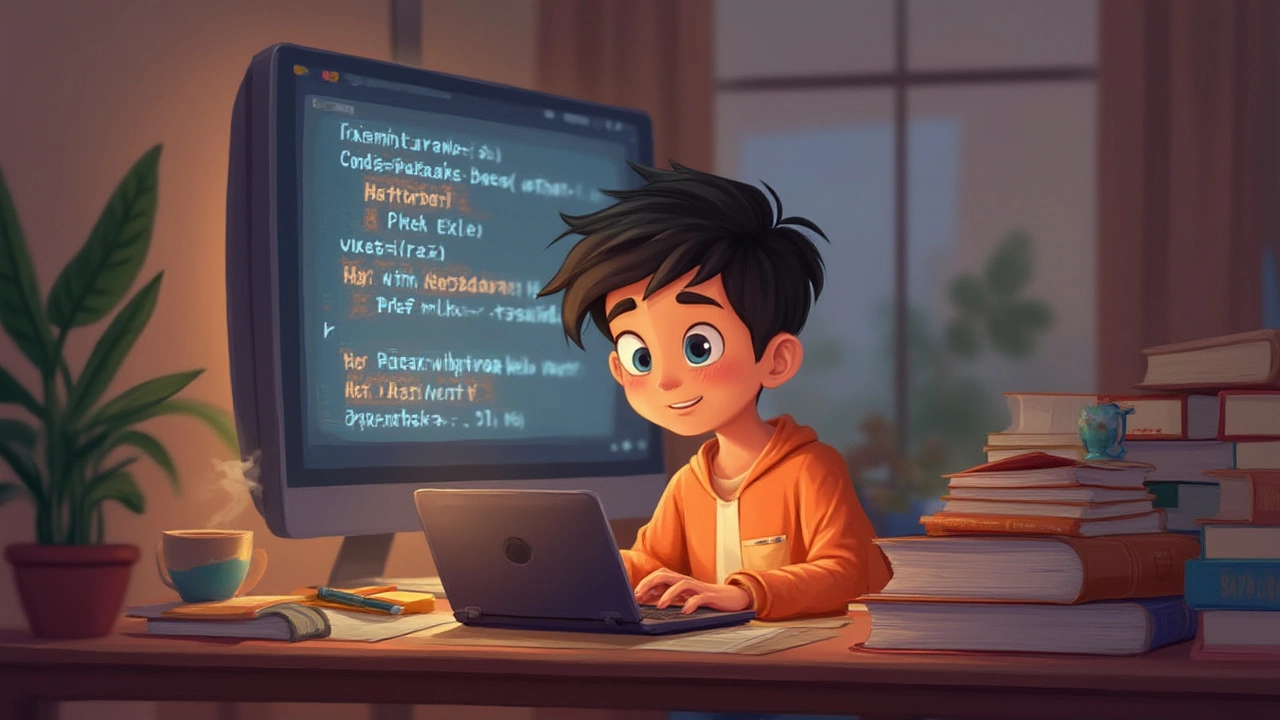
Which Language Should You Start With?
It’s tempting to ask, “Which one is easiest for everyone?” But honestly, the answer is—pick the one that matches your goals and style. You want to feel some small victories early—whether that’s getting a ‘Hello World!’ program to run, moving a cartoon cat on the Scratch screen, or making your first button on a web page work. Let’s compare the three more closely:
| Language | Best For | Learning Curve | Resources | Real Use Cases |
|---|---|---|---|---|
| Python | Absolute beginners, automation, data science, AI | Very gentle | Huge, global | Everything from Instagram servers to YouTube recommendation engines |
| Scratch | Kids, visual thinkers, schools | Super easy | Fun, interactive | Games, animations, logic basics |
| JavaScript | Websites, apps, digital marketing | Quick start, but deeper concepts later | Massive | Websites, web apps, browser games |
Here are some real-world steps for choosing and getting started:
- Ask yourself: Do you want to code for science, web pages, or just play around?
- If you plan to automate spreadsheets or do data analysis, Python is your best friend.
- Building websites? JavaScript will open doors for you.
- If you (or your kids) don’t want to memorize code at first, Scratch is safe and fun.
- Check out freeCodeCamp, W3Schools, or Khan Academy—these sites walk you step-by-step and even give you practice exercises and mini-projects.
One more tip: Don’t leap into C, Java, or C++ for your first experience! They’re great, but have more complex rules and lots of “gotchas” that trip up beginners fast.
Tips for Learning Your First Programming Language
Knowing which language is easiest is just the opening move. How do you learn it faster and avoid that classic beginner’s headache where a missing bracket turns your whole day into a bug hunt?
- Start Small: Begin with simple tasks. Get ‘Hello World’ working. Add two numbers together. Don’t jump to building Instagram on your first try.
- Follow Tutorials With Examples: Sites like freeCodeCamp, realpython.com, and YouTube have hands-on guides that let you try code out instantly. Don’t just read—type the code, see what happens.
- Break Projects Into Tiny Steps: If you want a calculator, start by making it add two numbers. Add more features one by one.
- Google Is Your Best Friend: Literally every programmer does this—even the pros. Copy/pasting error messages into Google, looking at Stack Overflow answers, and trying again is part of the journey.
- Code Every Day: Even 15 minutes a day builds “coding muscle memory.” You’ll notice understanding goes up way faster if you just do something daily.
- Find a Buddy or Coding Group: Joining a WhatsApp group, Discord server, or a local meetup keeps motivation high and gives you a place to ask simple questions whenever you jam up.
Remember, most successful learning journeys have a blend of structured classes (online or in-person), project building, and lots of “messing around” until the code finally works. You can even try playful stuff like coding a simple game, building a calculator, or automating boring parts of your own work (Python can rename hundreds of files in seconds, if you know how).
Keep an ‘error notebook’—write down mistakes and what finally fixed them. The more you encounter bugs, the less they scare you next time. Tougher bugs become like puzzles, not brick walls.
How Long Will It Take to Learn Basic Coding?
You probably wonder, "Am I too old? Will this take forever?" Take that myth and toss it out. People switch careers or add coding to their toolbox every single year, and age isn’t the blocker. It’s really about practice and staying curious.
So, how fast can you get good at this?
- If you work through basic Python tutorials for 30 minutes daily, most people finish basic syntax and can build a simple app in about 4 to 6 weeks.
- Kids or adults learning with Scratch often make playable games in the first week.
- For JavaScript, expect 1-2 months to get comfortable with core concepts if you stick with it regularly.
Harvard’s CS50x—the free online version of their famed computer science intro—shows that students who build every week, not just cram at the end, retain far more and actually enjoy learning.
To speed things up, blend the lessons with tiny real-world projects. Recreate your favorite calculator, automate text messages, or build a page that displays the local weather. Small wins build confidence fast.
If you get frustrated, step away and come back. Lots of learning happens after a coffee break.
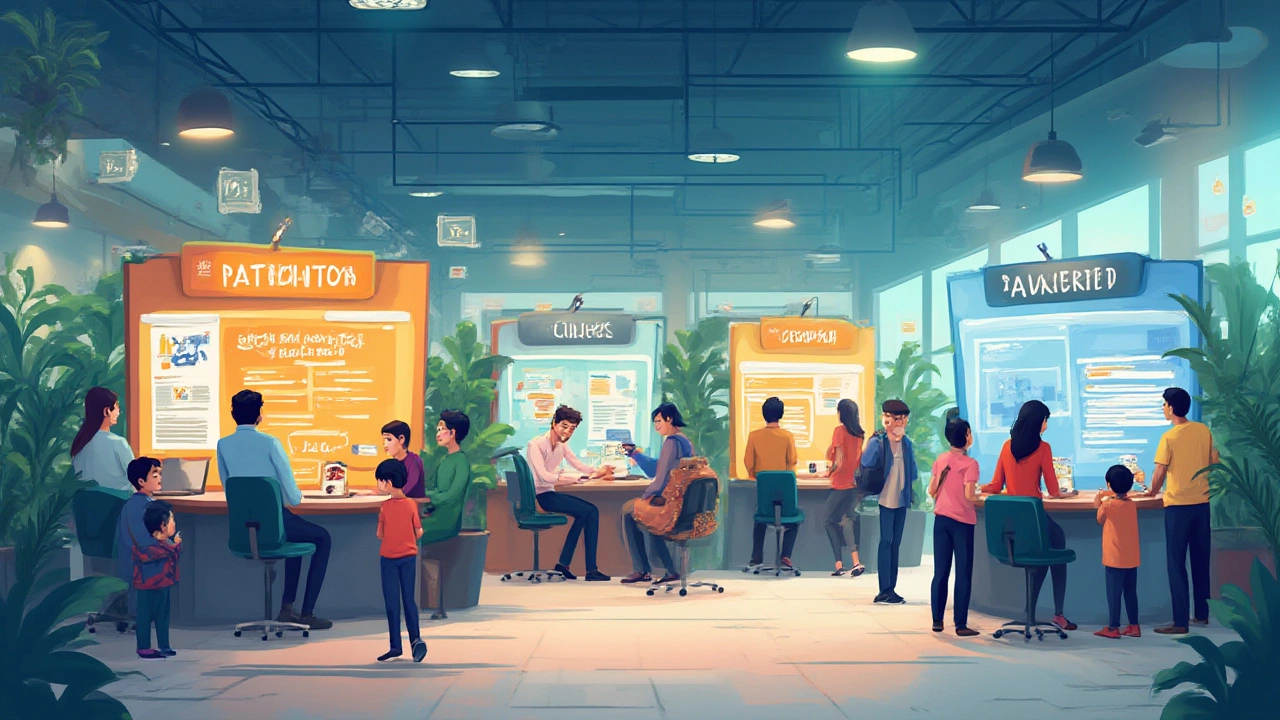
Making Coding a Lifelong Skill: Beyond Your First Language
Once you master one simple language, adding others feels more like learning a new dialect, not starting from scratch. The habits, logic, and thinking skills you built will be the real treasure here, not just Python or JavaScript syntax. Employers care about problem-solving, not just checking off language boxes.
People who learn coding often keep picking up new tricks for years—building websites, automating chores, tweaking gadgets, or teaching others. You never know where it could lead. Coding is a ladder—the first step is the hardest, but then you just keep climbing.
If you ever get stuck, just remember: the world’s biggest apps (Instagram, Spotify, even parts of WhatsApp) began with simple code. The key is just starting, making it fun, and not letting error messages win.
So when somebody asks, "What's the easiest coding language to learn?"—the right answer isn’t a secret code word. Pick Python for clear, useful, everyday problem-solving. Try Scratch if you want to see results without any stress. Or go for JavaScript if the web is calling your name. The simplest language is the one that gets you building—and keeps you coming back for more.
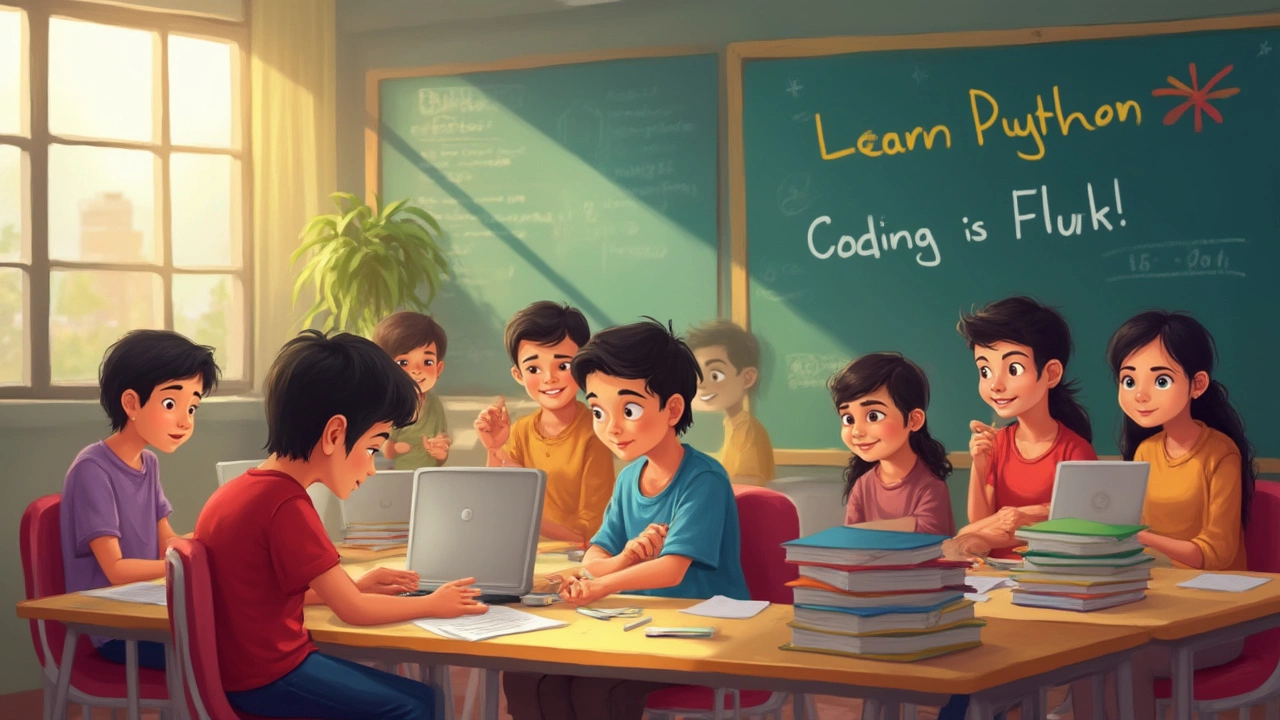
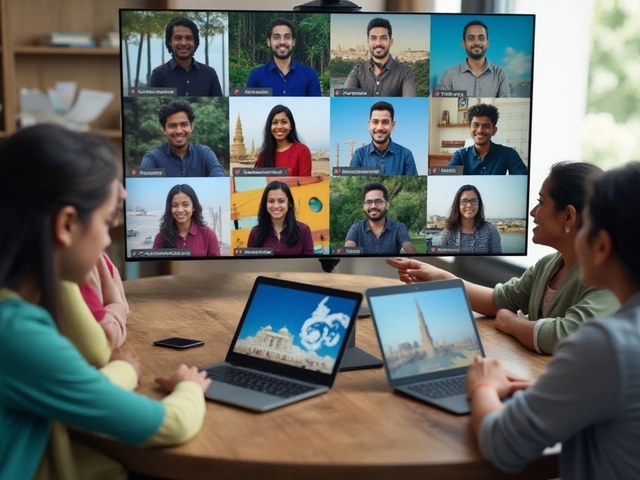
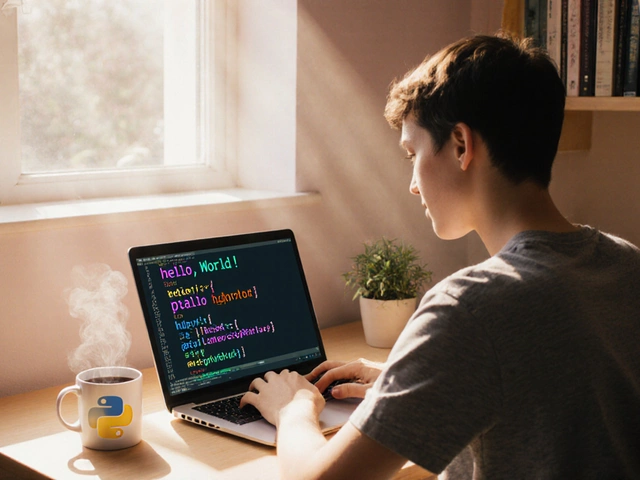
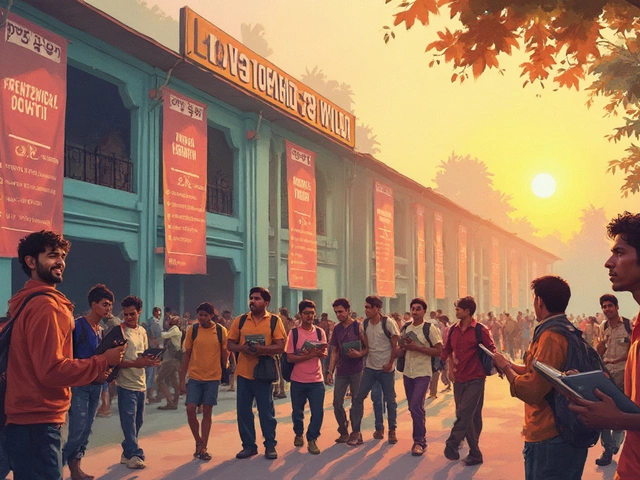


Write a comment: